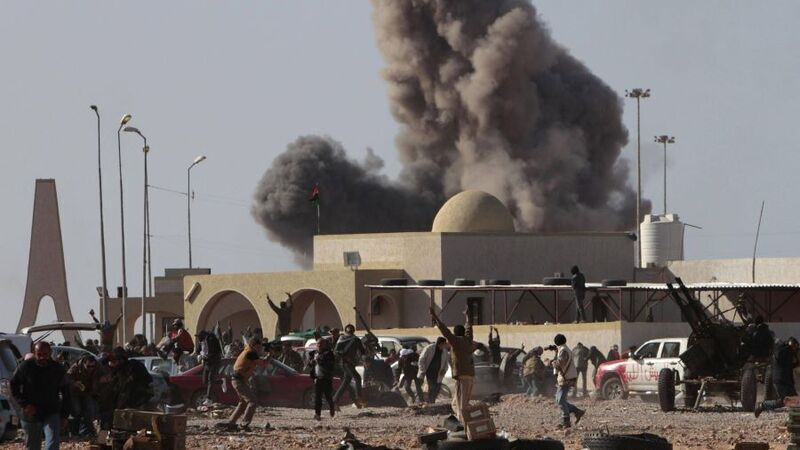Gaddafi forces advance on rebels as US mulls strikes

But the international debate on what action to take may have dragged on too long to help the anti-Gaddafi uprising, now struggling to hold its ground one month after it started.
Libyan state television said government troops had taken Zueitina, an oil port on the coastal highway 130km from Benghazi, but the rebels said they had surrounded the pro-Gaddafi units on the approaches to the town.














